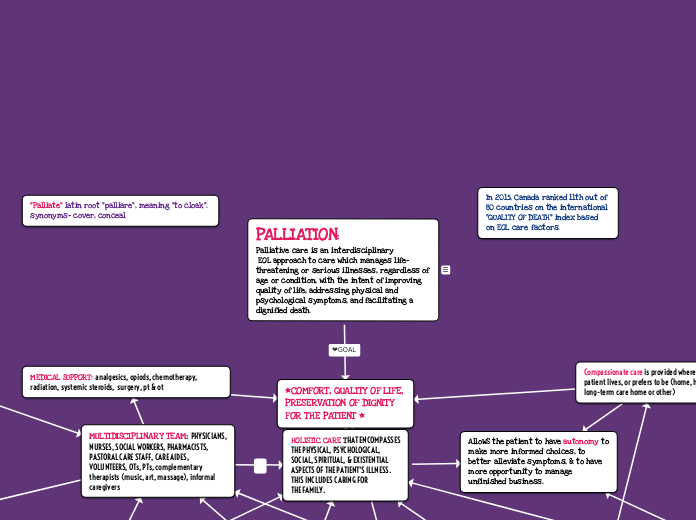arabera sam rozell 4 years ago
766
PALLIATION: Palliative care is an interdisciplinary EOL approach to care which manages life-threatening or serious illnesses, regardless of age or condition, with the intent of improving quality of life, addressing physical and psychological symptoms,
End-of-life care is designed to provide compassionate support to patients, regardless of their location, ensuring comfort and dignity during their final stages of life. Health care providers focus on pain relief, affirming life, and integrating psychological, spiritual, and cultural aspects of care.









